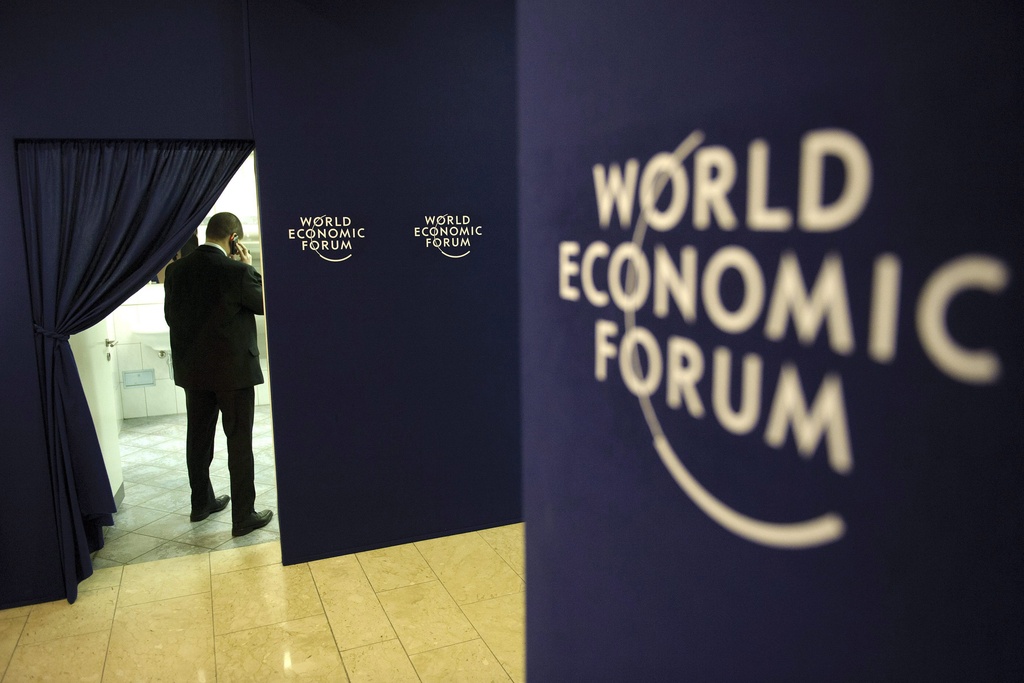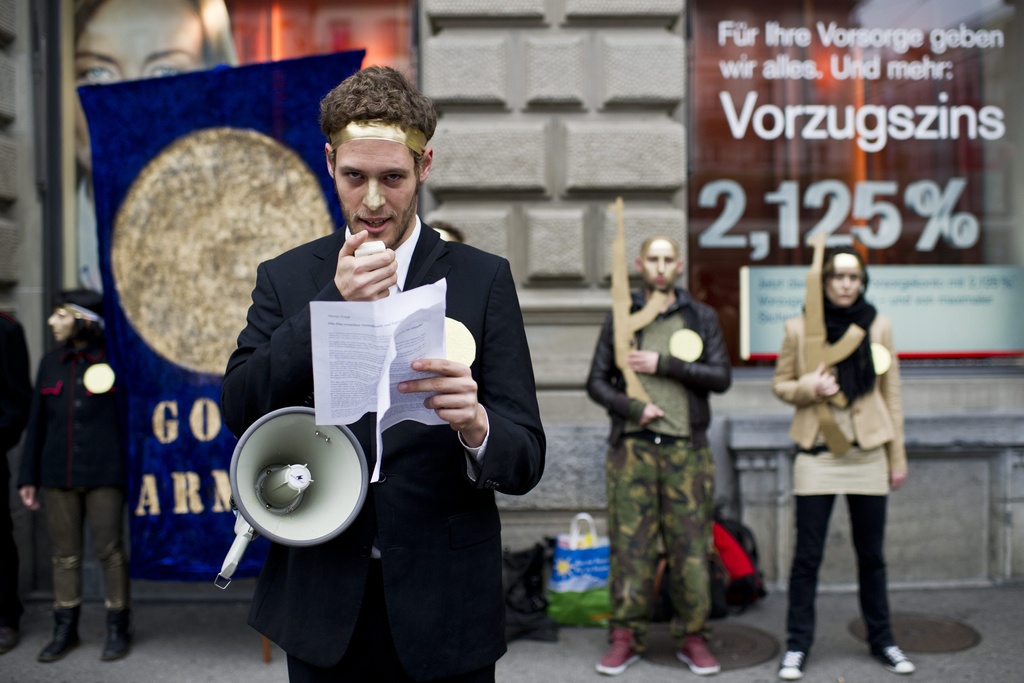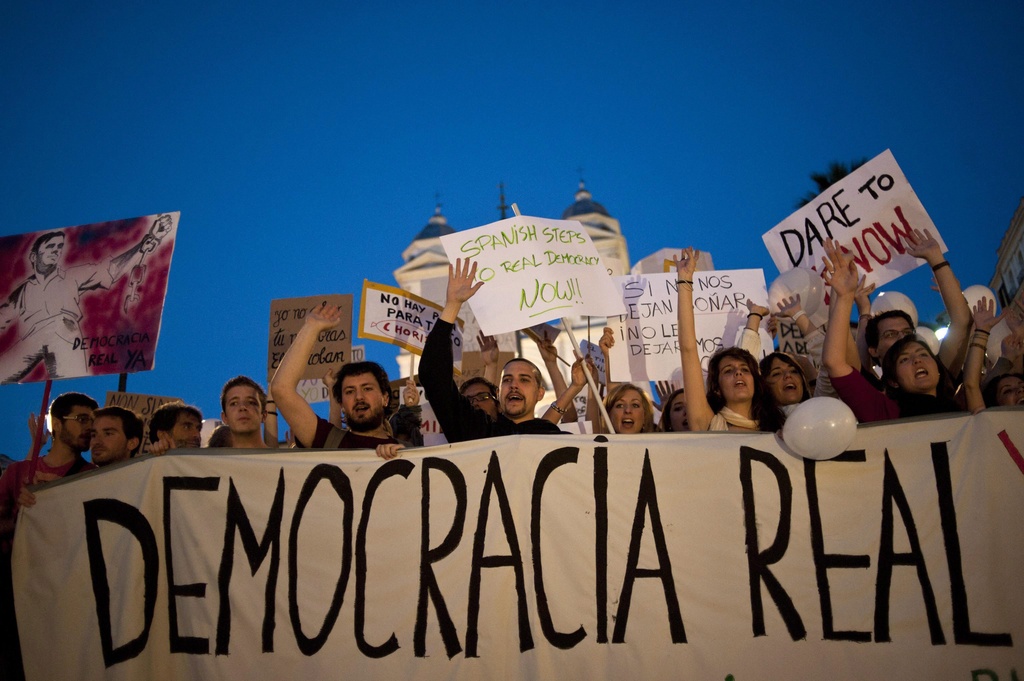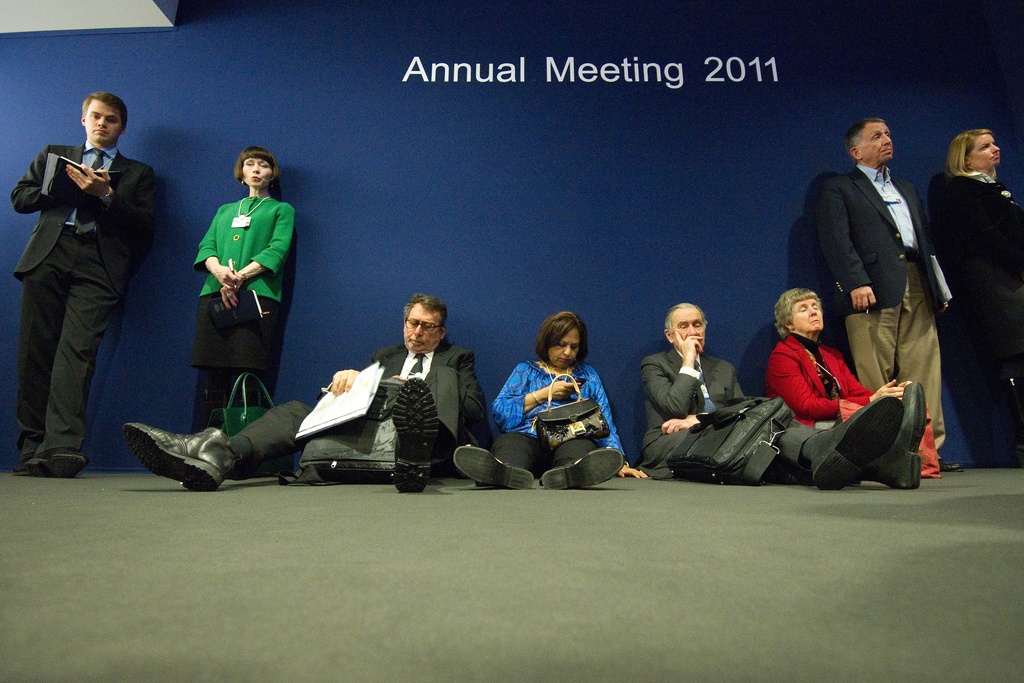Davos Open Forum gives lessons in leadership

Those attending the Davos Open Forum this week heard plenty of calls for bold and innovative leadership in times of crisis.
But while participants in the meeting – which takes place on the sidelines of the World Economic Forum – agreed on the need to think out of the box, they gave few details on which path was the best to follow.
The school hall in Davos was full of young people from all over the world, eager to take in the words of the guests of honour at the first session of the Open Forum.
Among those invited were the former British prime minister, Gordon Brown, and the recently-retired president of the European Central Bank, Jean-Claude Trichet.
For the guests, there is no doubt that the global financial crisis has put world leaders under the gun, forcing them to take unpopular decisions.
“We are facing the worst crisis since the First World War, and the consequences are not easy to foresee,” said Trichet.
“The only thing certain is that for the first time the answers are not going to be found in the economic textbooks. They need to be invented, and we need to have the courage to carry them through.”
Brown picked up the theme, remarking that the role of a political leader has changed radically in the past 40 years.
“The pressures are greater because we live in a globalised world,” he said. “In the past, a British prime minister could take the time to write poetry or to go to sleep instead of meeting President Kennedy… Now this would be out of place to say the very least.”
Brown added that a political leader needs the courage to put forward new solutions in a crisis.
“We are experiencing a permanent tension between the need to think out long-term strategies and the need for immediate responses dictated by internal political considerations,” he pointed out
Democracy in question
While critics have denounced an increasing erosion of democracy by financial interests, Trichet called democracy an obstacle for anyone trying to manage the crisis.
“At times the full seriousness of the situation is not visible to the eyes of ordinary people and then it is not easy to justify unpopular measures,” he said.
But Trichet rejects the notion of sacrificing democratic values, even if he emphasises how difficult it is to get people to understand the need to act quickly to avoid even more serious consequences.
“If I had taken no action in 2008, the financial crisis would have been much worse,” he added.
Courage and conviction
According to another guest, former Israeli Prime Minister Ehud Barak, the personality of a leader expresses itself best in times of deep crisis, when one has to act by instinct and not wait around too long.
Asked about the risk of leaders abusing their power, Barak pointed out that history has always had “bad” leaders too, and that to avoid a crisis one has to be vigilant, citing the Arab Spring as a concrete example.
“This is a movement of outstanding importance,” he added. “But now, with Islamic elements coming to power, there is a risk that it will result in a decrease in democracy.”
Combining forces
Despite the talk of courageous leaders, innovative entrepreneurs, and far-sighted politicians, the audience seemed to want to get beyond slogans and hear that the global change the WEF has been advocating for years was on the way.
The beginning of a response came from Brown.
“I believe that the big challenge of 2012 will be returning to a political and economic system based on strong values,” he said.
“But to succeed in this, we need to have a global discussion on the values we want to uphold. We must combine our forces… and deal with each single problem separately, one after another, to be able to achieve at least one of the Millennium Goals that we set for 2015.”
“I am also convinced,” Brown concluded, “that in the coming years women will have an even more important role in promoting global change. Even though for the moment, on this podium, there is not one to be seen…”
The WEF was started by Klaus Schwab in 1971 at Davos, initially under the name “European Management Symposium”, with the aim of facilitating contacts between European and North American leaders.
The headquarters of the WEF is in Cologny, in canton Geneva. Its annual budget is funded by about a thousand affiliated companies.
As well as holding the annual meeting in Davos, the WEF carries out symposia, working groups and studies in various countries of the world. It also carries out a variety of global and specific analyses commissioned by its own members.
Swiss non-governmental organisations and a number of church groups organised the first rival summit at the 2003 World Economic Forum (WEF) in Davos to raise concerns about globalisation.
The aim was to foster improved relations and dialogue between the two opposing camps.
The meetings of the Davos Open Forum are open to the public and admission is free. They take place at the Swiss Alpine Middle School in central Davos. The languages for the discussion are German and English (simultaneous translation). After a first round of discussion between the panellists, the audience is invited to challenge them with controversial questions and positions.
(Translated from Italian by Terence MacNamee)

In compliance with the JTI standards
More: SWI swissinfo.ch certified by the Journalism Trust Initiative





You can find an overview of ongoing debates with our journalists here. Please join us!
If you want to start a conversation about a topic raised in this article or want to report factual errors, email us at english@swissinfo.ch.